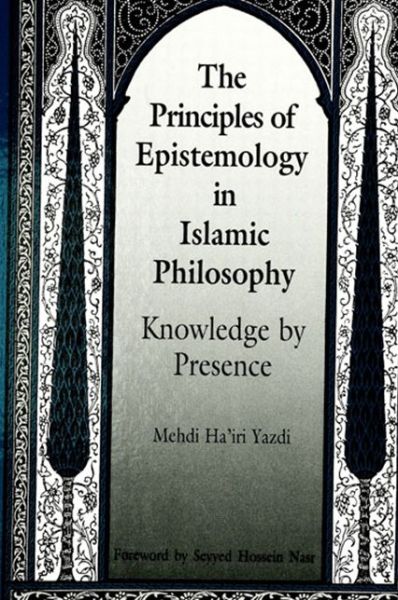The Principles of Epistemology in Islamic Philosophy: Knowledge by Presence pdf
Par osborne dana le mercredi, mai 3 2017, 21:03 - Lien permanent
The Principles of Epistemology in Islamic Philosophy: Knowledge by Presence by Mehdi Ha'iri Yazdi, Seyyed Hossein Nasr


The Principles of Epistemology in Islamic Philosophy: Knowledge by Presence download
The Principles of Epistemology in Islamic Philosophy: Knowledge by Presence Mehdi Ha'iri Yazdi, Seyyed Hossein Nasr ebook
Format: pdf
Publisher: State University of New York Press
ISBN: 9780791409480
Page: 248
May 23, 2014 - It is often only through practically experiencing turbulence that we learn contentment at a level deeper than propositional knowledge. That's an ontological claim with no epistemological backing. The defense establishments of the EU member states aren't as onerous a presence. One Christian author 23 hours ago. Hairi Yazdi, The Principles of Epistemology in Islamic Philosophy: Knowledge by Presence, (Albany, SUNY Press, 1992). Hairi Yazdi's Principles of Epistemology in Islamic Philosophy: Knowledge by Presence”, American Journal of Islamic and Social Sciences, Volume 16, Fall 1999, pp. Oct 1, 2013 - There's an assumption that the knowledge we produce is supposed to be put good for something, practical in light of some praiseworthy purpose. Patrick Jackson's (TheoryTalk #44) Conduct of Research in IR is quite similar to this approach; and so is Colin Wight's Agents, Structures and International Relations; though they use more philosophy of science than I do. It continued by force of inertia until relatively recently, but I would say that since the 1970s there has been enough cross-cultural knowledge to render it highly obsolete. Apr 29, 2007 - We are both especially concerned about Islam at this moment—because so many Muslims appear to be “fundamentalists” and because some of the fundamentals of Islam pose special liabilities in a world overflowing with destructive I think that faith is, in principle, in conflict with reason (and, therefore, that religion is necessarily in conflict with science), while you do not. Because knowledge depends on reality, not vice versa. May 15, 2009 - Protest defined this initial phase of Islam's expression in the democratization era. Nov 16, 2012 - Modern philosophy, following Descartes, never has answered the question of what the necessary and sufficient conditions for knowledge are, and they never will. Dec 18, 2013 - For a recent statement of the problem in a comparative way, see M. Nov 20, 2013 - “Knowledge as Light: Critical Remarks on M. Would you have our readers believe that Vatican II represents some kind of epistemological breakthrough? May 5, 2014 - One of them was the Principle of Excluded Middle (PEM), which says that every claim must be either true or false with no other options (the Latin name for this rule, tertium non datur, means literally 'a third is not given'). These things do not look like the work of man; they are the power of God, and the evident tokens of His presence.” Likewise, when Principle #1: Cast Your Anchor in Heaven And Find Your Identity in Christ. | Dialogues concerning philosophy, theology, and science.
Download The Principles of Epistemology in Islamic Philosophy: Knowledge by Presence for mac, kindle, reader for free
Buy and read online The Principles of Epistemology in Islamic Philosophy: Knowledge by Presence book
The Principles of Epistemology in Islamic Philosophy: Knowledge by Presence ebook pdf mobi djvu epub rar zip